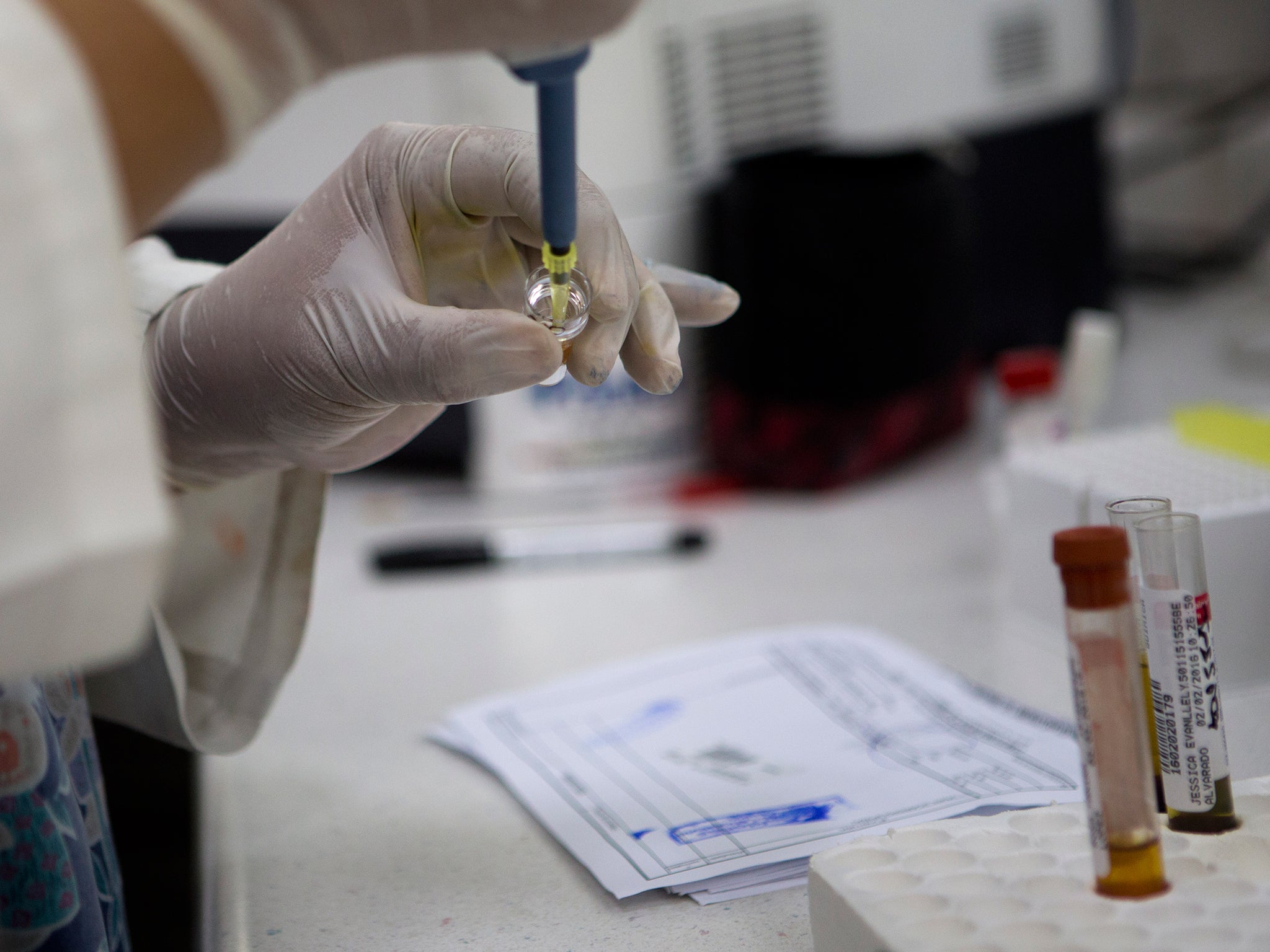Zika virus project hailed by Theresa May on Scottish visit was funded by EU scheme which could be lost after Brexit
Prime Minister says the work is part of her plan to 'forge a more Global Britain' - but the funding stream is likely to disappear after EU withdrawal

Your support helps us to tell the story
From reproductive rights to climate change to Big Tech, The Independent is on the ground when the story is developing. Whether it's investigating the financials of Elon Musk's pro-Trump PAC or producing our latest documentary, 'The A Word', which shines a light on the American women fighting for reproductive rights, we know how important it is to parse out the facts from the messaging.
At such a critical moment in US history, we need reporters on the ground. Your donation allows us to keep sending journalists to speak to both sides of the story.
The Independent is trusted by Americans across the entire political spectrum. And unlike many other quality news outlets, we choose not to lock Americans out of our reporting and analysis with paywalls. We believe quality journalism should be available to everyone, paid for by those who can afford it.
Your support makes all the difference.A research project hailed by Theresa May to protect people from “the awful Zika virus” was funded under an EU scheme likely to be lost after Brexit.
The Liberal Democrats said the revelation was “a major embarrassment” for the Prime Minister, exposing the weakness of her case for leaving the EU.
Speaking on her visit to Scotland, Ms May pointed to the £11m project being carried out by scientists from the University of Glasgow as an example of her determination to “forge a more Global Britain”.
She told civil servants in East Kilbride: “Researchers here are exploring the potential for new vaccines to prevent the devastation caused by serious illnesses and epidemics.
“I know, for example, that the work to tackle the awful Zika virus that is a source of such anguish for people across Latin America is being led by researchers at Glasgow University, supported by UK government funds.”
The Prime Minister said, of such vital work: “It says this: that when this great union of nations – England, Scotland, Wales and Northern Ireland – sets its mind on something and works together with determination, we are an unstoppable force.
She added: “I believe, when we work together, there is no limit to what we can do.”
But, although the Zika virus work is “supported by UK government funds”, as Ms May said, only around £1m comes from the Government’s Global Challenges Research Fund.
No less than £10m has been provided by the EU’s Horizon 2020 research and innovation program – its key funding stream for ground breaking medical research.
Ministers have pledged to underwrite existing Horizon 2020 projects to the end of the current spending round in 2020. British researchers receive about £1bn a year.
However, future involvement would have to be renegotiated as part of any Brexit deal, creating huge uncertainty for scientists.
Many fear the worst because, by 2020, the details of the follow-up Horizon programme will be almost completed, making it harder for Britain to opt in.
Tim Farron, the Lib Dem leader, said: “This is a major embarrassment for Theresa May.
“She’s trying to make the case of Brexit Britain, but one of the examples she points to has benefitted massively from our membership of the EU.
“Theresa May has chosen the hardest and most divisive form of Brexit, and now she is clutching at straws to try and defend this reckless decision.”
The Zika virus hit the headlines last year, when some athletes pulled out of the Rio Olympics over fears of infection.
The World Health Organization (WHO) declared a global public health emergency after more than 1,400 cases of microcephaly in babies in Brazil, an outbreak which spread to 60 countries.
The babies were born with abnormally small heads, a condition threatening their brain development. The virus has also been linked to a rare nervous system disorder, Guillain-Barre syndrome.
The EU funding is confirmed in a press release, last October, announcing how the Glasgow scientists had “united with 25 research organizations to fight Zika Virus and build long-term outbreak response capacity in Latin America”.
Join our commenting forum
Join thought-provoking conversations, follow other Independent readers and see their replies
Comments